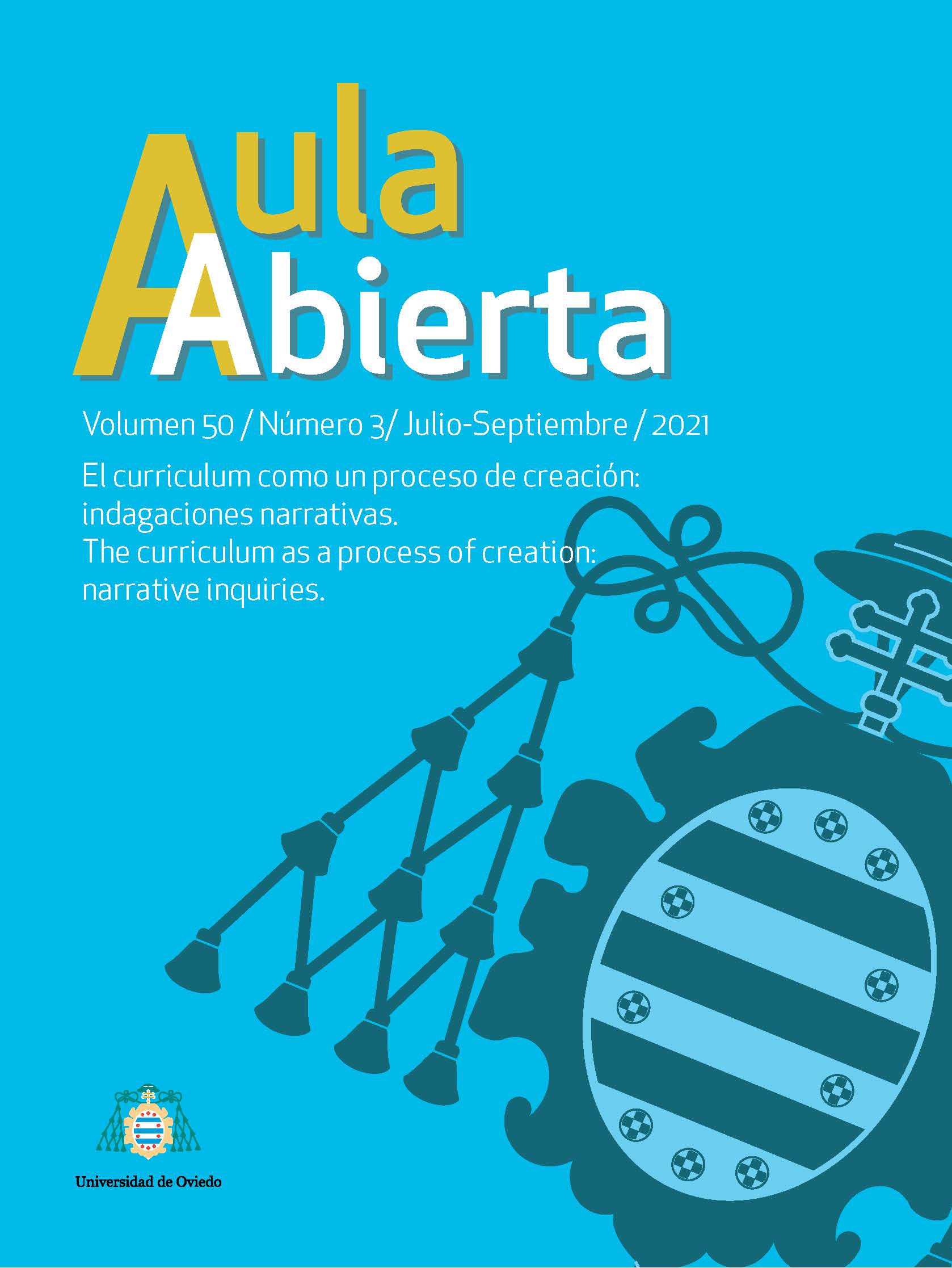Abstract
We approach this work from the pedagogical framework of curricular creation, which allows us to direct attention to education not as programs that are applied, but as processes of subjectivation that are immersed in relations of transmission, appropriation and cultural recreation. The purpose of the work is to deepen into the processes of cultural transmission through the investigation of experiences of curriculum creation in schools. The study is carried out from the framework of hermeneutical phenomenology. Through hermeneutical conversation and close observation we have accompanied a teacher weekly for two school years. We analyze the process of creating a school garden. The analysis indicates that: 1) the mediation of the teacher generates spaces of shared creation in which each person can put themselves at stake and, with this, build their own place in relation to the culture that precedes them; 2) the place of the teacher in the school and the cultural transmission is sustained in a disposition of listening that does not judge, trusting and knows how to wait for the other, as well as in the creation of limits that makes possible cultural transmission.
References
Amilburu, M. (2021). Conexiones en red con otros tiempos, espacios y generaciones. Roger Scruton, tradiciones y educación. Teoría de la Educación. Revista Interuniversitaria, 33(1), 35-49. https://doi.org/10.14201/teri.23463
Arendt, H. (1996). Entre el pasado y el futuro. Ocho ejercicios sobre la reflexión política. Península.
Bellamy F. X. (2018). Los desheredados. Por qué es urgente trasmitir la cultura. Encuentro.
Biesta, G. (2017). El bello riesgo de educar. SM.
Blanco, N. (2005). Innovar más allá de las reformas. Revista Electrónica Iberoamericana sobre Calidad, Eficacia y Cambio en Educación, 3 (1), 372-381. Disponible en: http://www.redalyc.org/articulo.oa?id=55130137
Blanco, N. (2006). Saber para vivir. En A. M. Piussi y A. Mañeru (Eds.), Educación, nombre común femenino (pp. 158-183). Octaedro.
Blanco, N., Molina, M. D., y López, A. (2015). Aprender de la escuela para dar vida a la universidad. Revista interuniversitaria de formación del profesorado, 82, 61-76.
Clandinin, D. J., y Connelly, F. M. (1992). Teacher as curriculum maker. En P. W. Jackson (Ed.), Handbook of research on curriculum: A project of the American Educational Research Association (pp. 363-401). MacMillan.
Coccoz, V. (2017). Freud. Un despertar de la humanidad. Gredos.
Connelly, F. M., y Clandinin, D. J. (1988). Teachers as Curriculum Planners. Narratives of Experience. Teachers College Press.
Contreras, J. (2016). Tener historias que contar: Profundizar narrativamente la educación. Roteiro, 41(1), 15-40. https://doi.org/10.18593/r.v41i1.9259
Contreras, J., y Pérez de Lara, N. (Eds.) (2010). Investigar la experiencia educativa. Morata.
Costa, V. (2018). Fenomenología de la educación y la formación. Sígueme.
Dewey, J. (1997). Experience and education. Touchstone.
Eisner, E. (1998). El ojo ilustrado. Paidós.
Freire, P. (2004). La importancia de leer y el proceso de liberación. Siglo XXI.
Martín-Alonso, D. (2019). El tejido curricular. Indagación narrativa sobre la relación educativa y el proceso de creación curricular [Universidad de Málaga]. https://hdl.handle.net/10630/19311
Martín-Alonso, D., Blanco, N., y Sierra, J. E. (2019). El proceso de creación curricular en estudiantes de educación secundaria. Una indagación narrativa. Profesorado, Revista de curriculum y formación de profesorado, 23(2), 377-395. https://doi.org/10.30827/profesorado.v23i2.9692
Martín-Alonso, D., Blanco, N., y Sierra, J. E. (2021). Estudio fenomenológico sobre las disposiciones docentes en la relación pedagógica. Magis, Revista Internacional De Investigación En Educación, 14. (en prensa)
Masschelein, J. y Simons, M. (2014). Defensa de la escuela. Miño y Dávila.
Meirieu, Ph. (2010). Una llamada de atención. Carta a los mayores sobre los niños de hoy. Ariel.
Perrenoud, Ph. (2012). Cuando la escuela pretende preparar para la vida: ¿desarrollar competencias o enseñar otros saberes? Graó.
Piussi, A. M., y Mañeru, A. (Eds.). (2006). Educación, nombre común femenino. Octaedro.
Recalcati, M. (2016). La hora de clase: Por una erótica de la enseñanza. Anagrama.
Recalcati, M. (2020). El secreto del hijo. De Edipo al hijo recobrado. Anagrama.
Rodari, G. (2017). Escuela de fantasía. Blackie Books.
Sierra, J. E. (2019). Entre nuestras urgencias y sus deseos, la escucha. Márgenes, Revista de Educación de la Universidad de Málaga, 0 (0), 119-122. http://dx.doi.org/10.24310/mgnmar.v0i0.6615
Sierra, J. E., y Blanco, N. (2017). El aprendizaje de la escucha en la investigación educativa. Qualitative Research in Education, 6(3), 303-326. http://dx.doi.org/10.17583/qre.2017.2783
Stenhouse, L. (1998). Cultura y educación. MCEP.
Van Manen, M. (1998). El tacto en la enseñanza: El significado de la sensibilidad pedagógica. Paidós.
Van Manen, M. (2003). Investigación educativa y experiencia vivida: Ciencia humana para una pedagogía de la acción y la sensibilidad. Idea Books.
Zambrano, M. (2007). Filosofía y educación: Manuscritos (A. Casado y J. Sánchez-Gey, Eds.). Editorial Ágora.

This work is licensed under a Creative Commons Attribution-NonCommercial-NoDerivatives 4.0 International License.
Copyright (c) 2021 Aula Abierta






